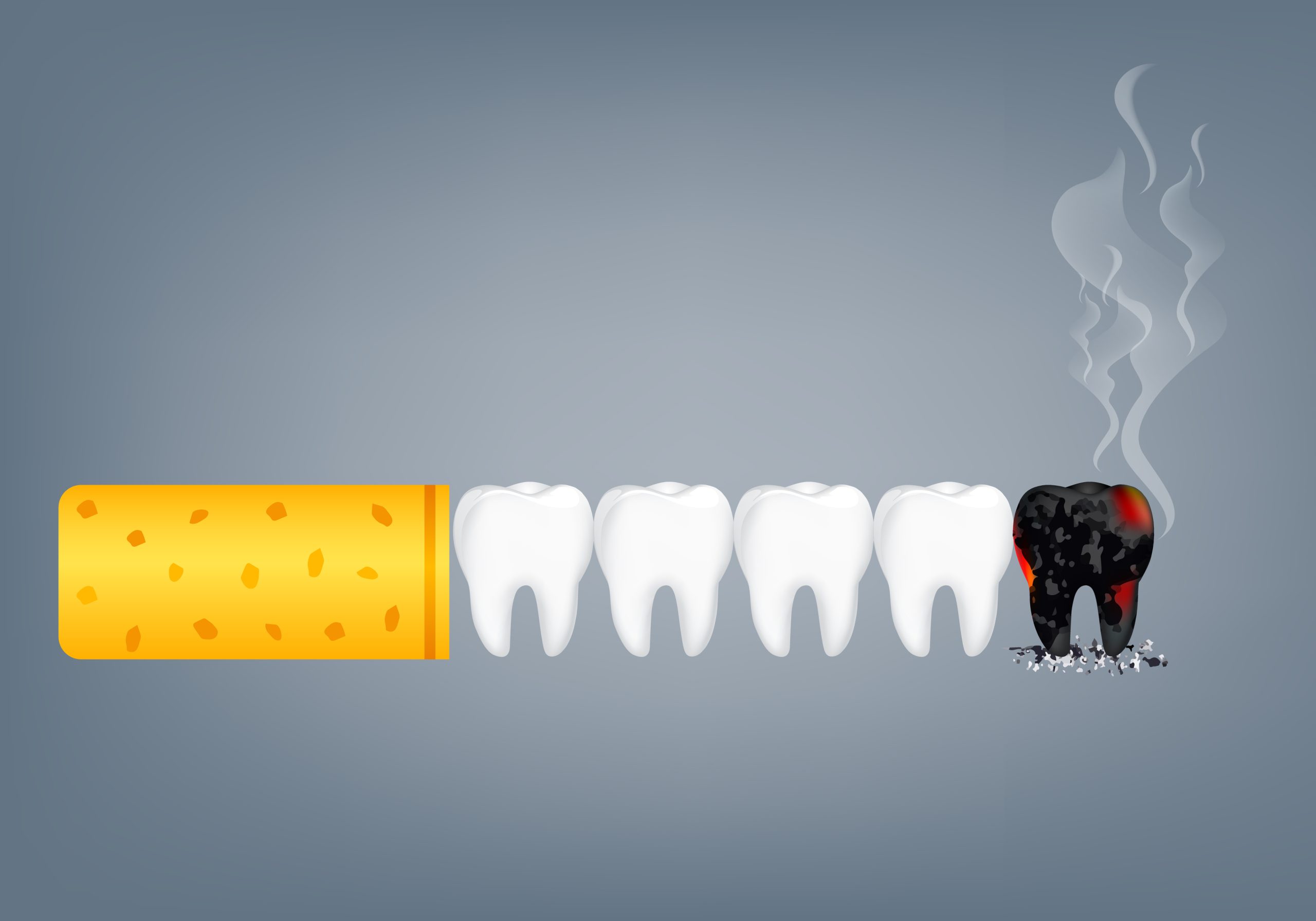Tobacco use, in its various forms, is a well-documented hazard to human health. While the harmful effects on the respiratory system and heart are widely recognised, the impact of smoking on oral health is equally alarming. Smoking is a significant contributor to oral health problems, and one of the most concerning consequences is the increased risk of tooth extractions.
In this blog, we’ll learn about the crucial link between tobacco use and tooth extractions, emphasising the importance of understanding the potential consequences of smoking on oral health.
The Oral Health Impact of Smoking
Smoking is detrimental to oral health in multiple ways, making it one of the leading causes of tooth extractions. Here are some key factors that contribute to the decline in oral health among smokers:
Gum Disease:
Smoking has been closely associated with an increased risk of gum disease. This condition, characterised by inflammation and infection of the gum tissues, can progress to a severe stage known as periodontitis. Periodontitis can lead to the destruction of the supporting structures of teeth, ultimately necessitating tooth extractions.
Tooth Decay:
Smoking can also contribute to tooth decay. The harmful chemicals in tobacco can weaken tooth enamel, making teeth more susceptible to cavities. As tooth decay progresses, it can lead to the loss of teeth and the need for extractions.
Oral Cancer:
The most severe consequence of smoking on oral health is the development of oral cancer. Smoking is a major risk factor for various forms of oral cancer, including mouth, throat, and tongue cancers. The treatment for oral cancer often involves the removal of affected tissues, which may include teeth. This highlights the profound link between smoking and tooth extractions.
The Relationship Between Smoking and Tooth Extractions
The connection between smoking and tooth extractions is evident from a growing body of research and clinical evidence. Here are a few insights into how smoking can lead to tooth extractions:
Weakened Immune System:
Smoking weakens the immune system, making it less effective at combating oral infections. As a result, gum disease and other oral infections can progress more rapidly in smokers, often reaching a point where tooth extractions become necessary to prevent the spread of infection.
Delayed Healing:
Smokers often experience delayed healing after dental procedures, including tooth extractions. The harmful chemicals in tobacco can restrict blood flow, impair tissue repair, and increase the risk of complications following extractions. This emphasises the importance of smoking cessation both before and after dental surgery.
Smoking Cessation and Oral Health
The good news is that quitting smoking can significantly reduce the risk of tooth extractions and improve oral health. Here are some reasons why smoking cessation is essential for maintaining healthy teeth:
Reduced Risk of Gum Disease:
Quitting smoking decreases the risk of gum disease and periodontitis. The improvement in gum health can help preserve the supporting structures of teeth, reducing the need for extractions.
Better Healing:
Smoking cessation leads to improved blood circulation and tissue healing. This is especially important for patients undergoing tooth extractions or other dental procedures, as it reduces the likelihood of complications.
Lower Risk of Oral Cancer:
By quitting smoking, individuals can drastically lower their risk of developing oral cancer, avoiding extensive surgical treatments, including tooth extractions.
Smoking and Oral Health
Recognising the connection between tobacco use and tooth extractions underscores the urgency of quitting smoking to maintain healthy teeth and gums.
Value Dental Centres advises individuals who smoke to seek support for quitting, as it can lead to improved oral health and a brighter smile for years to come. Your oral health matters, and choosing to quit smoking is a vital step toward preserving your teeth and overall well-being.

